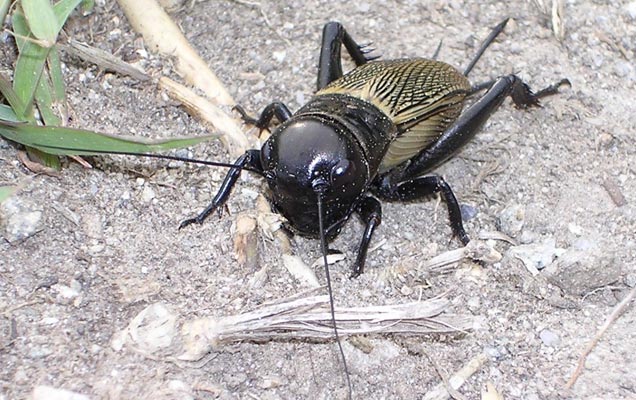We're open daily! View holiday hours
Science News
Chivalrous Arthropods
October 21, 2011

Despite what you might hear, chivalry is not dead. Just ask a few arthropods. Recent research demonstrates that for a few species, gentlemanly behavior works every time, even though the results can be quite different.
For the male golden orb weaver spider (Nephila pilipes), chivalry is a gentle back rub, calming the female during multiple copulation sessions. Researchers actually call this “mate binding”—in which the male spins a fine silk and spreads it about the female’s backside.
Researchers from Singapore and the US wanted to know if it was the scent of the silk that calmed the females, or the “tactile communication” of the back rub. Using super glue and other tools in their kit, the scientists ran a series of tests on the spiders. The result? National Geographic News reports:
All 17 females that couldn't "smell" calmed down after getting a massage. Females that couldn't "feel" were less likely to let their mates get it on more than once—about 40 percent weren't calmed…
Of those that weren’t calmed (and couldn’t feel their backrubs), many ate their mates—a common practice in the spider world.
This research, published earlier this month in Animal Behavior, shows that chivalry is a form of stayin’ alive for these spiders.
Male field crickets (Gryllus campestris) also perform chivalrous acts as a form of survival. Not necessarily their own, however.
Scientists often witnessed these crickets in the lab guarding the female after mating. These possessive males know that if another male gets close, his chance of offspring go down—a second mate’s sperm can flush the first delivery. Researchers thought from this behavior that the first male was aggressively coercing the female to stay close.
But scientist Rolando Rodriguez-Munoz wondered how these insects behave in the wild, outside the lab, and set about videotaping them. Instead of aggressive coercion, Rodriguez-Munoz found the male crickets protect the females from predators, occasionally even at the cost of the male’s own cricket life. ScienceNOW explains the findings:
When pairs hang out outside their holes [burrow homes], males tend to sit farther away from the entrance, letting females stay closer in. That makes it easier for the buzzing females to duck away from oncoming predators like magpies; males, however, become an easy lunch.
If they do live, though, the rewards are great—they’ll likely mate again. In effect, the male crickets trade a longer life span for greater success in fathering offspring with their partners. The research was published in Current Biology.
Image: Roberto Zanon